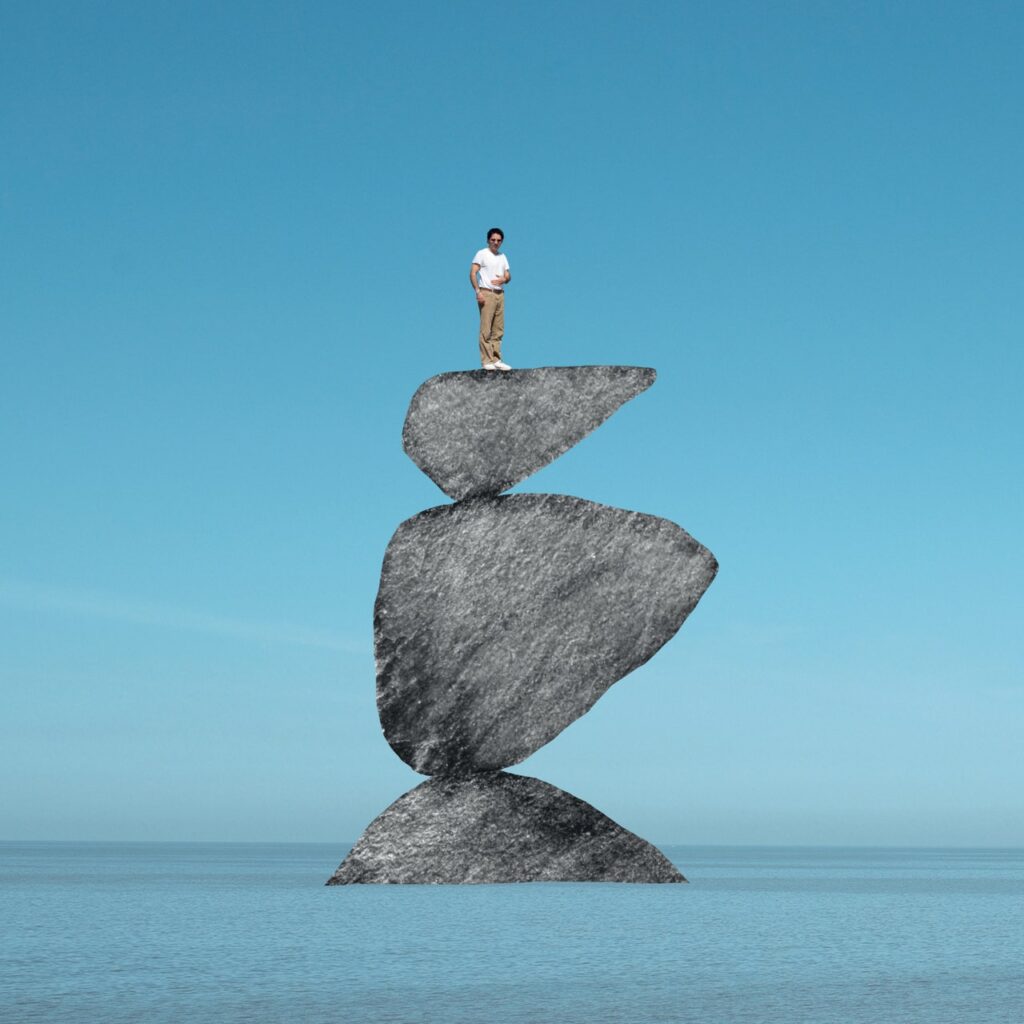By now, fans know what to expect from a Juan Wauters album. A folksy hodgepodge of short songs delivered in a nasal croon. Unpretentious lyrics observing the beauty of ordinary life, sung in English and his native Spanish. A warm, loosely plucked acoustic guitar as the central instrument. Oh, and he’ll probably mention something about being from Queens. But his biggest trademark is his freewheeling charm (à la Jonathan Richman), rooted in his love of community. Wauters’ focus has typically been outward, spotlighting his many collaborators and the people he’s met through his music and travels. But after canceling plans for 2020, he relocated to his birthplace of Montevideo, Uruguay, where he found love, stability, and a new definition of home. He processes this reckoning throughout Wandering Rebel, his most introspective album yet.
As always, Wauters’ lust for life takes communal and corporeal form. His projects are laden with features, from indie darlings like Mac DeMarco and Homeshake to the traditional Latin American guitarists Alejandro Dominguez and Luciano Fuentes Borquez. On “Modus Operandi,” fellow New Yorker Greta Kline (Frankie Cosmos) observes sidewalks deserted during the pandemic and asks if the city will ever be the same again. “When it gets rough out here/People that have options go back to their suburbs,” Wauters laments in response. “To them, it was just like some kind of Disney World.” “Milanesa al Pan,” with Argentine singer Zoe Gotusso, is a joyful contrast. Accompanied by group vocals and sweetly textured guitars, the pair take on the roles of long-distance lovers who reunite on the beach to share the titular Argentinian sandwich.
Wandering Rebel skews insular, though, and its somber moments are the most resonant. Thunder cracks through “Nube Negra” (“Black Cloud”), where Wauters writes about changing his surroundings and finally coming to terms with his dark mental state: the globetrotting philosopher acknowledging that you take yourself everywhere you go. Y La Bamba’s Luz Elena Mendoza Ramos plays the role of the cloud, the watery mystique of their harmonies personifying the way depression lingers without a clear cause or solution. Dreams of settling down are also heavy on Wauters’ mind. “I’m looking to have a family/So if this music thing not pick up/We’ll have to make some changes up in here,” he confesses on the title track, his frank talk-singing taking center stage over John Carroll Kirby’s wistful piano. It feels vulnerable; Wauters has always favored straightforward thoughts, and here there isn’t even a goofy beat or quirky melody to hide behind.
In its latter half, Wandering Rebel takes on a more melancholic and contemplative tone, revealing a side of Wauters that his charisma as a performer sometimes conceals. But he maintains his slice-of-life idiosyncrasies. There’s still room for a song like “En un barrio de Montevideo,” the kooky rough cut of an album closer. Over looped synths that could’ve been a James Ferraro throwaway, it contains two slurred, Auto-Tuned voicemails. One is from a radio station requesting an interview about Wauters’ music; the other is someone hitting him up about a gig polishing floors. It’s weirdly out of place but quintessentially Juan: an unassuming document of the double-life realities of a working artist who never takes himself too seriously.
All products featured on Pitchfork are independently selected by our editors. However, when you buy something through our retail links, we may earn an affiliate commission.

